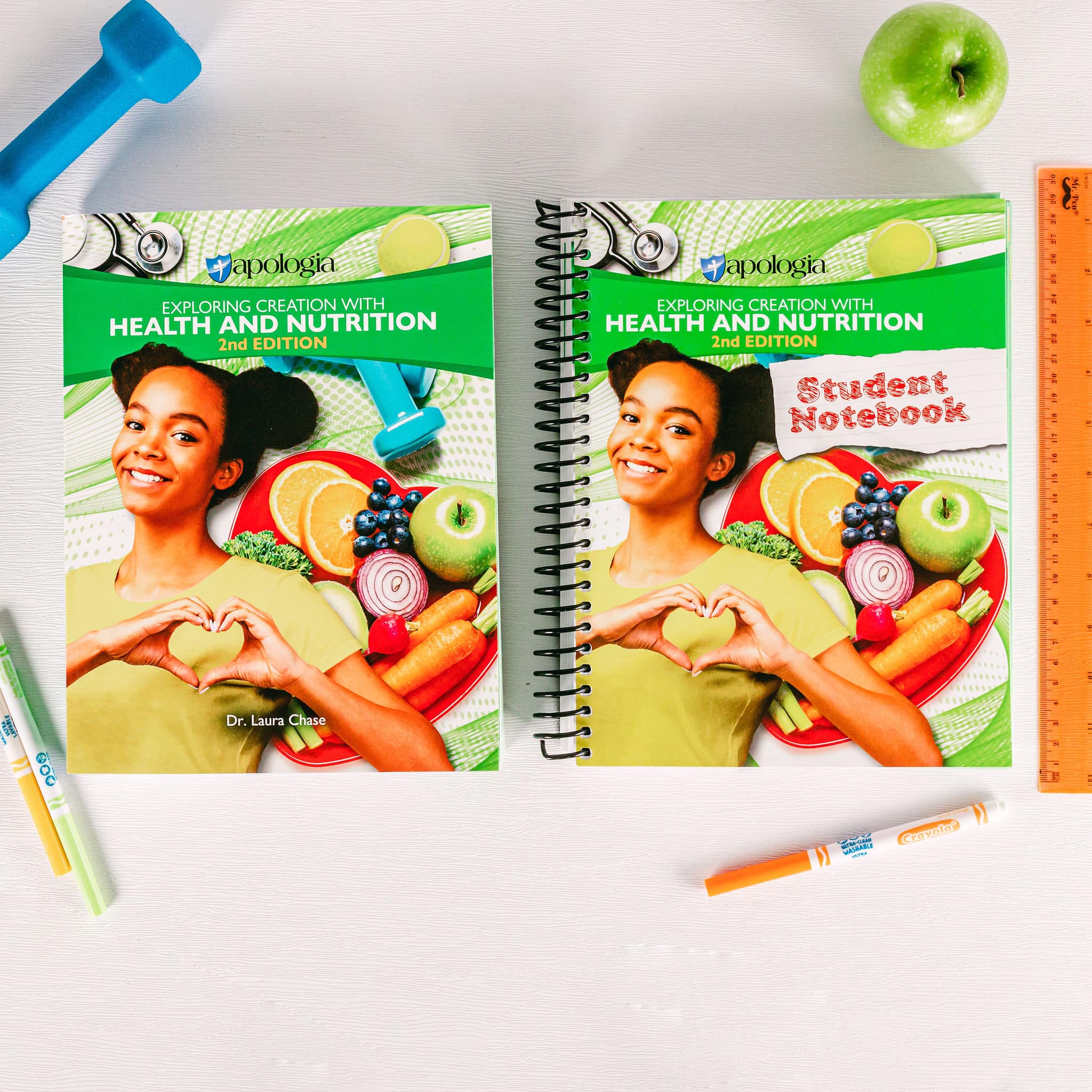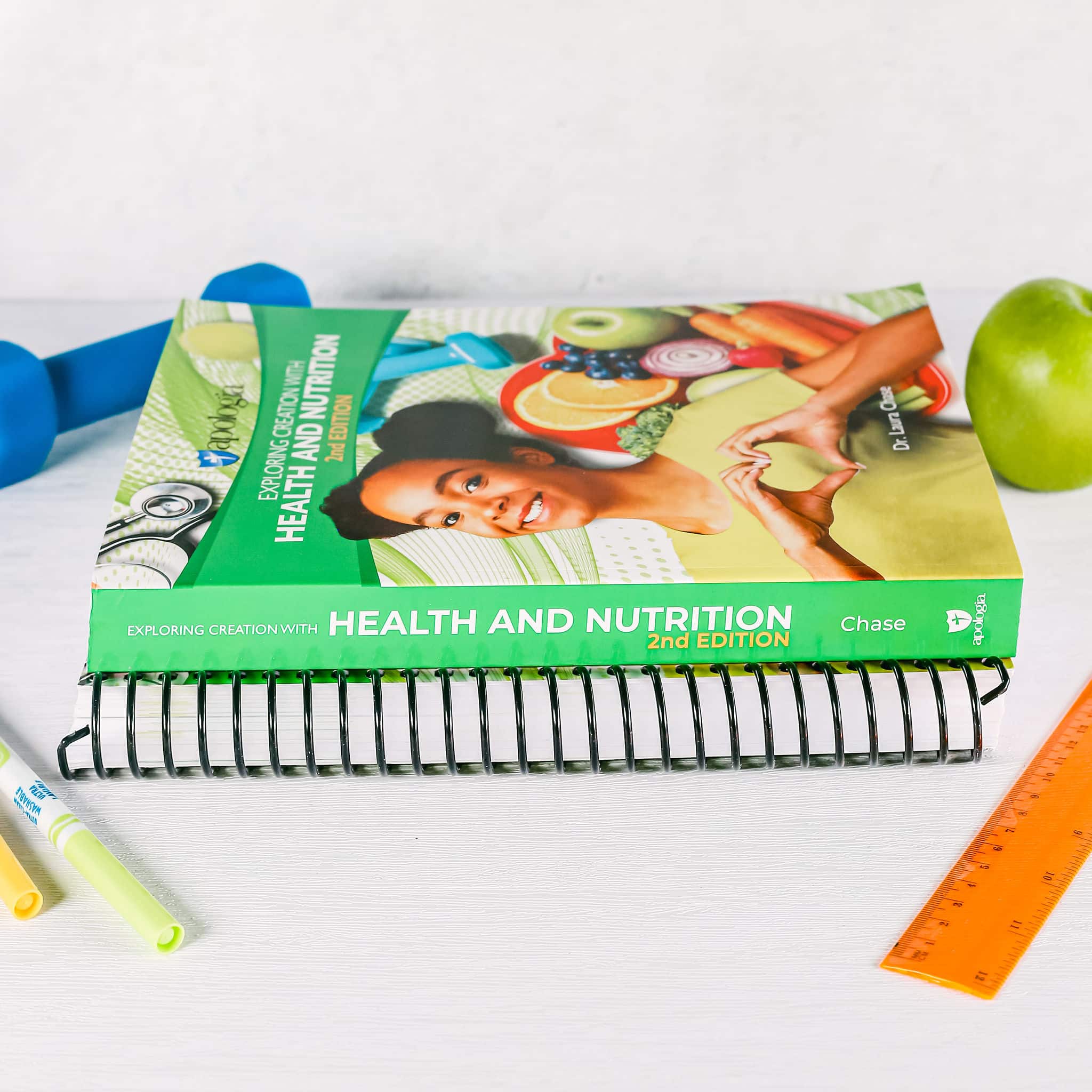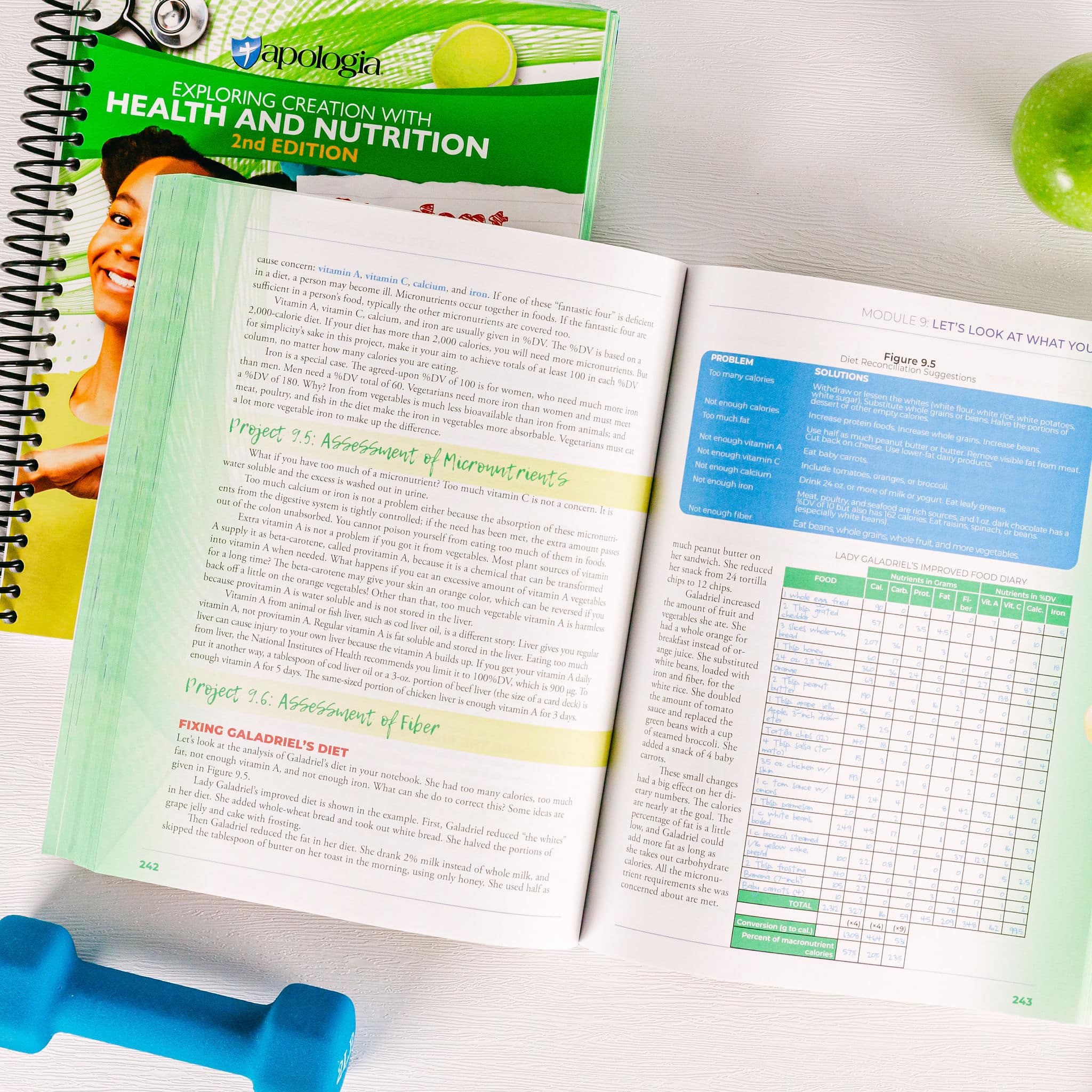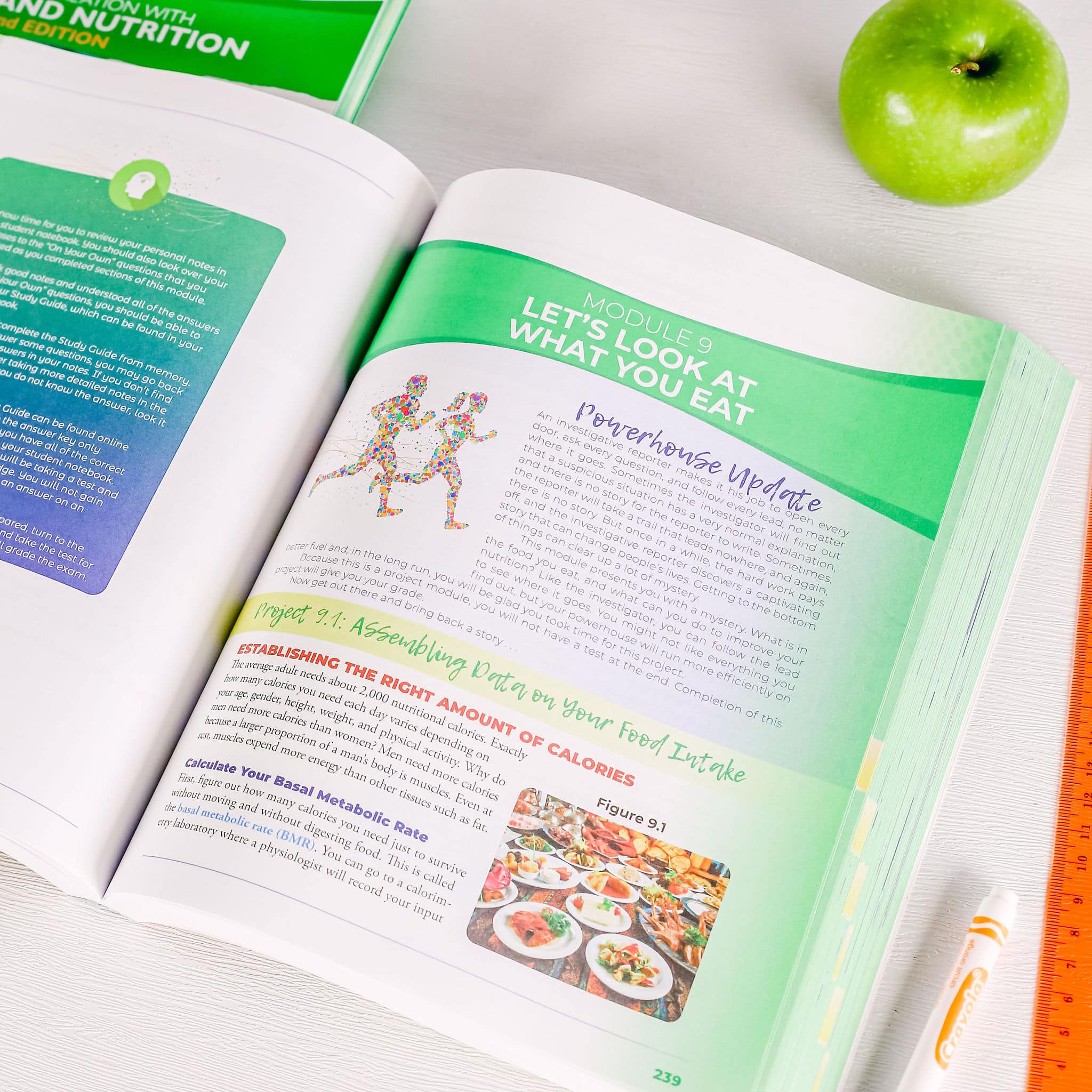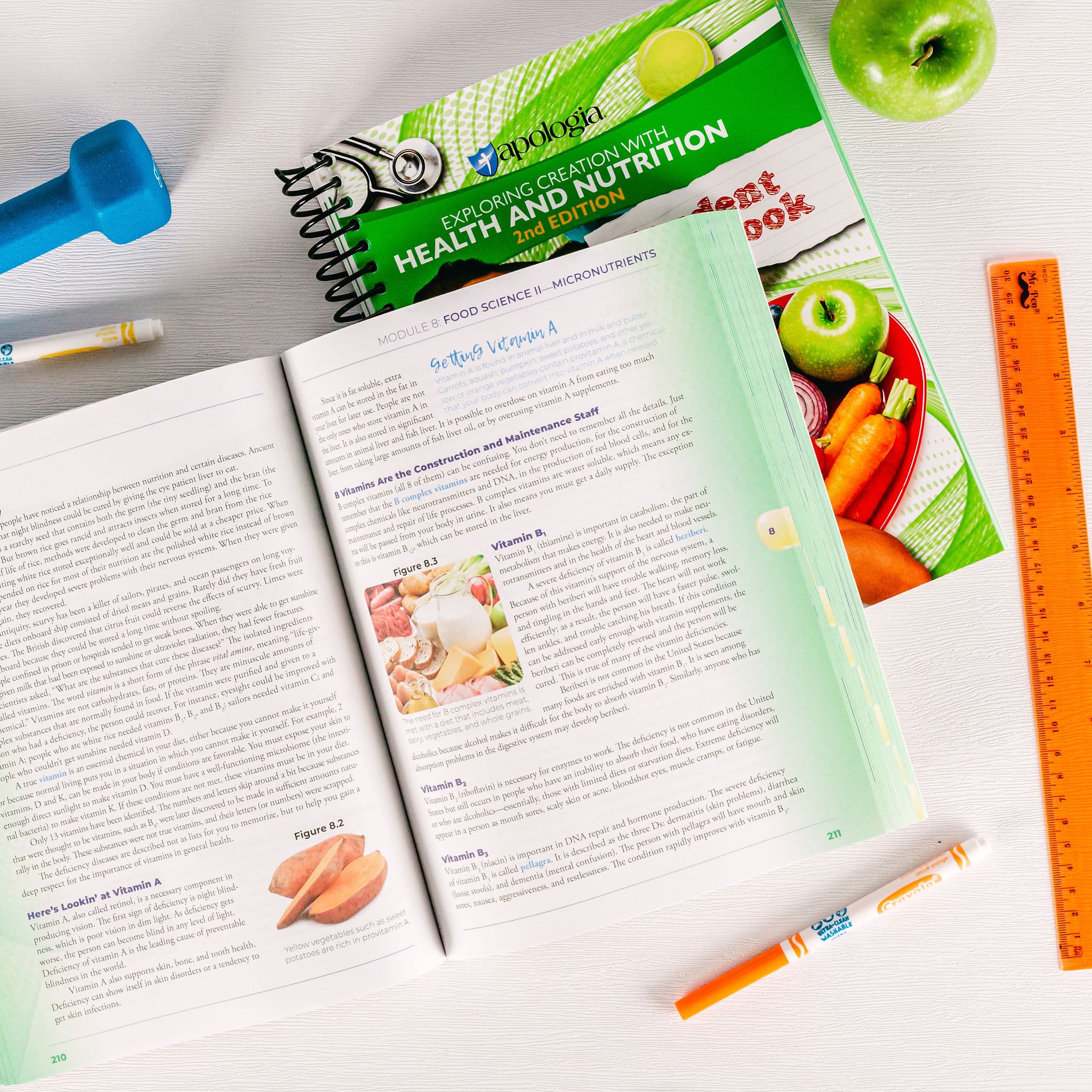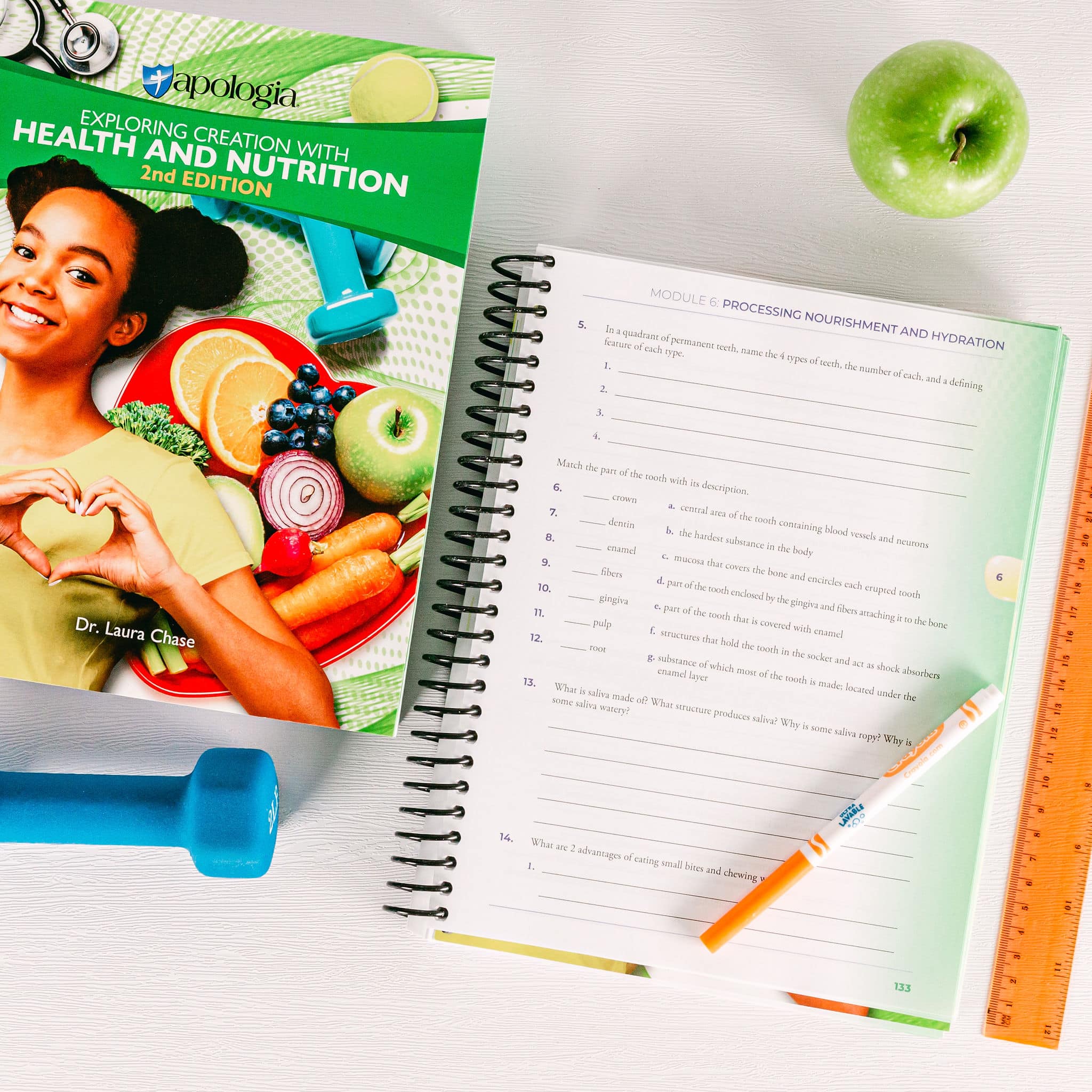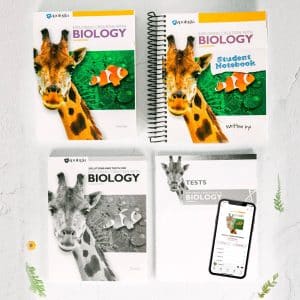Description
Becoming a young adult is often filled with uncertainty about maturity and the choices that accompany this stage of life. Apologia’s 2nd edition of health and nutrition curriculum is designed to remove some of this uncertainty, equipping your student with what they need to know to make the best choices they can for themselves as they become young adults. This curriculum is written to your student in a conversational tone, and cultivates independent learning.
There are 2 ways to give credit for this course.
- State Requirement – Students who are taking health and nutrition as a state requirement should also complete the student notebook. The notebook contains projects, Study Guides, and tests for the student to complete for State credit. The answers to the “On Your Own” questions are found at the end of each module, and the answers to the Study Guides and tests are found online at the Book Extra site for this title. A student could easily finish the course in one semester (14 weeks), reading one module per week. However, if your student wanted to take it over the course of a year (28 weeks), they would plan to read through a module every two weeks at his or her leisure.
- Elective – Students who are taking health and nutrition as an elective course do not have to complete the student notebook, though we do recommend it for the course. As an elective, students would be expected to read the textbook and complete the “On Your Own” questions to ensure they have comprehended the materials. The answers to the On Your Own questions are found at the end of each module. A student could easily finish the course in one semester (14 weeks), reading one module per week. However, if your student wanted to take it over the course of a year (28 weeks), they would plan to read through a module every two weeks at his or her leisure.
The Answer Key is included on the Apologia Book Extras site. This course is for high school credit (1 or 2 semesters tailored to your needs).
What’s Included In Apologia’s Exploring Creation with Health and Nutrition, 2nd Edition, Basic Set?
This Homeschool Curriculum Basic Set includes:
When used together, these items provide your student with an optimal homeschool learning experience and the ability to complete the course for state credit.
Curriculum Overview
Apologia’s health and nutrition curriculum covers the physical, nutritional, emotional, social, mental, and spiritual aspects of growing into a healthy adult. Students will study the human body systems, senses, genetics, and temperaments. They’ll also learn one of the most impactful things at work in their lives as young adults: how physical influences impact their thoughts and feelings. The course respectfully covers relevant topics such as mental illness and emotional stability, the value of another human being, culture, biological sex as related to our gender roles, families, socialization, communication skills, and conflict resolution skills.
Students will also gain an in-depth knowledge of both macronutrients and micronutrients, including the importance of exercise and proper diet.
Lesson Plans and Materials
The Exploring Creation with Health and Nutrition, 2nd Edition textbook, is written in a conversational format with the author talking directly to your student. We guide them through key learning strategies like how to think critically about what they are learning, identifying important parts of the information presented, taking meaningful notes, and completing projects.
Suggested Daily Schedule
A suggested daily schedule is included in the student notebook so your student easily understands what is expected of them each day, while also providing flexibility to meet the needs of your student and family.
Hands-on Projects
Throughout this module, your student will connect textbook instruction with hands-on projects for maximum learning. No special equipment is necessary.
In this health and nutrition course, there are over 50 projects noted and included in the textbook and student notebook. These projects include practical topics such as nature versus nurture, personal temperament, good decision-making skills, boundary setting, analyzing food intake and activity levels, creating good hygiene habits, keeping a sleep record, and so much more.


